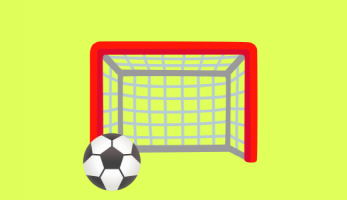Click below to ask any questions - we particularly love "When can we start?"
While our team can optimise your Shopping Feed, we can only use the information that is already there to attribute fields and structure product titles.
This is why it is important to include as much key information as possible.
Here’s what you need to know when optimising your Shopping Feed…
A primary feed is the central data source that Google Merchant Center uses to access and display your product data.
1. Images
This is a prominent component of a Shopping Ad and is a required attribute by Google. Multiple images can be submitted through a main image link and additional image links.
Use high quality images (1500 x 1500 pixels minimum) that display your entire product, this should be framed so the product takes up 75-90% of the full image.
Make sure your image does not include any promotional text such as watermarks, calls to action or logos.
Find more information here on minimum size and format requirements.
You might want to try testing whether your audience responds best to lifestyle or stock images.

2. Product titles
Your product titles are essential to successful Google Shopping Ads and Free Listings.
Titles should include the most relevant product information within 150 characters, although the first 70 characters are the most important as this is what will be shown on the results page.
Key information to add includes brands, descriptors, colour, size, material and product type when relevant to your product.
Missing key information can result in your products not being shown on the Google Search Results Page or being incorrectly categorised by Google.
You should avoid excessive capitalisation and promotional text.
Make sure to include information to distinguish between variants and avoid duplicate product titles in the feed.
The exact same methodology can be applied here in order for your product listings to rank better organically in the free shopping listings.
Ranking higher for the more specific terms can help your listings – both paid and organic – convert at a higher rate, as the consumer has a much better idea of exactly what they want to find.
3. Product Descriptions
This is a required attribute for every product.
Add in-depth information about your product including features, technical specifications and visual attributes that make your products unique.
Adding more detail can help your products be shown to the right audience and increase impressions and clicks.
Although the character limit for descriptions is 10,000, the recommended length is between 500 to 1500.

4. Colour
This is a required attribute for certain product categories such as Apparel & Accessories but is beneficial for all relevant products as it can be an important factor for many shoppers.
You may include colours in the website attribute or within the product description and/or titles which can then be extracted and attributed correctly.
You can submit up to 3 colours for multicoloured products.
Standard colour names should be used when adding this information to the title rather than own brand versions.
5. Size
Although not a required attribute for all product categories, size should be added where relevant.
When added, it means your products can appear on the filtered-by-size results page.
Make sure a standard size value is used, such as “S” for small, or measurements that will be easily understood by users.
6. Material
The material should be included for all products that vary by material and where it may be an important, distinguishable feature.
Including the main fabric or material that your products are made of, up to 3 materials can be added to the attribute separated by ‘/’.
Adding this information can help customers narrow searches using the filtered results page.
7. Unique Product Identifiers
These are some of your feed’s most crucial attributes and include: GTINs, MPNs and Brand.
It is advised that products have at least 2 out of the 3 main identifiers.
Google analyses and groups together products based on similar submitted data.
It is important that identifiers, such as GTINs & Brands, are correct so that your products are not grouped incorrectly or have conflicting data with your competitors.
As long as your products are not custom, you should be able to obtain product GTINs from the manufacturer.

8. Product Review Schema
If you utilise product reviews on your website – either via a dedicated reviews plugin or a provided template from your CMS platform – then you can also implement something called Product Review Schema.
Essentially, this is generated by specific short code – or ‘structured data’ – that can be placed into your product templates via the backend of your website, which can then enable Google to display your shopping feeds (both paid and organic) with product review stars in the listing.
This can go a long way to help your products stand out against the competition and build confidence in your target audience.
9. Product Types
Product types are another way to tell Google which product your Ad should show and are also a good way to implement your own product categorisation that can be used to organise Google Shopping campaigns, bidding and reporting.
You can use ‘ > ’ to add multiple levels.
Adding more depth can have a great impact on product placement within Google Shopping.




